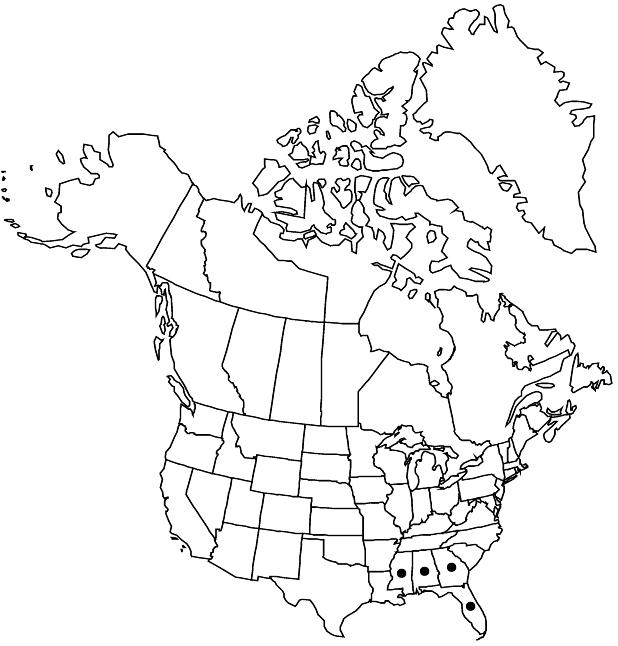Difference between revisions of "Rhododendron austrinum"
in L. H. Bailey, Stand. Cycl. Hort. 6: 3571. 1917 ,.
FNA>Volume Importer |
imported>Volume Importer |
||
| Line 7: | Line 7: | ||
}} | }} | ||
|common_names=Florida azalea | |common_names=Florida azalea | ||
| + | |special_status={{Treatment/ID/Special_status | ||
| + | |code=E | ||
| + | |label=Endemic | ||
| + | }} | ||
|basionyms={{Treatment/ID/Basionym | |basionyms={{Treatment/ID/Basionym | ||
|name=Azalea austrina | |name=Azalea austrina | ||
| Line 51: | Line 55: | ||
|publication title=in L. H. Bailey, Stand. Cycl. Hort. | |publication title=in L. H. Bailey, Stand. Cycl. Hort. | ||
|publication year= | |publication year= | ||
| − | |special status= | + | |special status=Endemic |
| − | |source xml=https:// | + | |source xml=https://bibilujan@bitbucket.org/aafc-mbb/fna-data-curation.git/src/bb6b7e3a7de7d3b7888a1ad48c7fd8f5c722d8d6/coarse_grained_fna_xml/V8/V8_912.xml |
|subfamily=Ericaceae subfam. Ericoideae | |subfamily=Ericaceae subfam. Ericoideae | ||
|genus=Rhododendron | |genus=Rhododendron | ||
Revision as of 00:17, 28 May 2020
Shrubs or trees, to 3(–5) m, usually not rhizomatous. Stems: bark smooth to vertically furrowed, shredding; twigs conspicuously multicellular stipitate-glandular-hairy, otherwise ± moderately to densely unicellular-hairy. Leaves deciduous; petiole multicellular stipitate-glandular-hairy and unicellular-hairy; blade ovate to obovate, 3–11 × 1.5–4.5 cm, thin, membranous, margins entire, plane, ciliate, eglandular- and stipitate-glandular-hairy, apex acute to obtuse, often mucronate, abaxial surface ± moderately unicellular-hairy, adaxial surface sparsely scattered stipitate-glandular-hairy, otherwise ± moderately unicellular-hairy, rarely glabrescent. Floral bud scales densely to moderately unicellular-hairy abaxially, margins unicellular-ciliate, also partly glandular-serrate. Inflorescences 9–24-flowered; bracts similar to bud scales. Pedicels 5–17 mm, stipitate-glandular-hairy, otherwise ± densely unicellular-hairy. Flowers opening before or with leaves, erect to horizontal, slightly or not fragrant; calyx lobes 0.5–2.5 mm, scattered stipitate-glandular-hairy, otherwise unicellular-hairy, margins long stipitate-glandular-hairy; corolla yellow to orange, with usually red or orange-red tube, with indistinct, darker yellow, orange, or red blotch on upper lobe, funnelform, 25–45 mm, scattered stipitate-glandular-hairy, otherwise ± moderately unicellular-hairy on outer surface, petals connate, lobes 9–20 mm, tube ± gradually expanded into lobes, 15–25 mm (longer than lobes); stamens 5, much exserted, ± unequal, 52–77 mm. Capsules borne on erect pedicels, 14–26 × 3–5.5 mm, sparsely to densely stipitate-glandular-hairy, otherwise moderately to densely unicellular-hairy. Seeds without distinct tails, flattened portion of testa well developed at each end; testa expanded, dorsiventrally flattened, ± loose. 2n = 26.
Phenology: Flowering spring.
Habitat: Wooded slopes, bluffs or lowlands along streams
Elevation: 0-100 m
Distribution

Ala., Fla., Ga., Miss.
Discussion
Rhododendron austrinum is most closely related to R. luteum Sweet of eastern Europe, Turkey, and the Caucasus region and to R. occidentale (K. A. Kron 1993).
Selected References
None.